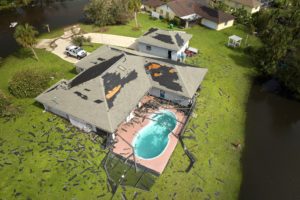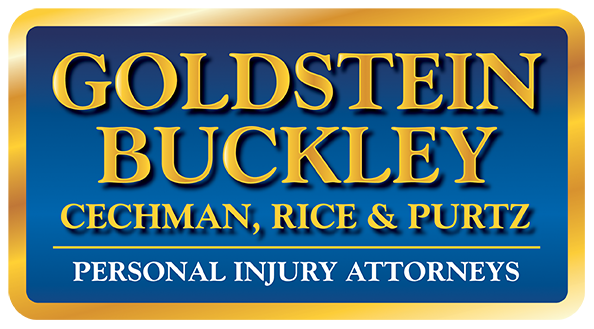Goldstein, Buckley, Cechman, Rice and Purtz can help clients fight insurance companies that deny Hurricane Ian property insurance claims.
 Hurricane Ian, a Category 4 hurricane, made landfall Sept. 28 in Southwest Florida. In the aftermath of the historic storm, many homeowners and businesses are dealing with severe damage to their property. At the same time, they’re also dealing with insurance companies that do not have their best interest. It can be a lengthy process to battle the insurance company to recover fair value for your claim.
Hurricane Ian, a Category 4 hurricane, made landfall Sept. 28 in Southwest Florida. In the aftermath of the historic storm, many homeowners and businesses are dealing with severe damage to their property. At the same time, they’re also dealing with insurance companies that do not have their best interest. It can be a lengthy process to battle the insurance company to recover fair value for your claim.
Insurance companies will make low-ball offers or deny coverage in many occasions, hoping a desperate homeowner will jump at the offer. An experienced attorney can help you get a fair and equitable settlement for your personal or business loss from Hurricane Ian.
Privately insured losses from Hurricane Ian are expected to reach $67 billion. As of Friday, Oct. 14, 519,686 insurance claims had been filed in Florida, including 367,903 involving residential property. Other claims involve such things as auto damage. Estimated insured losses from those claims totaled $5.492 million, according to the Florida Office of Insurance Regulation.
Steps to take for Hurricane Ian property insurance claims
Home and business owners can help protect their rights to their insurance settlement by taking several steps after the storm:
- Save all receipts because your policy may cover gas, extra food and lodging, a generator and gasoline, spoiled food and other expenses after the storm. These expenses as well as repair expenses, even if you do them yourself, are often covered by your policy and can be applied to reduce your deductible.
- Do what you can to prevent additional damage to your property.
- Keep track of the work you do, such as removing trees, moving items to safety and minor repairs.
- Keep track of the time of your labor and cost of materials for any work that you or someone else does for cleanup and property preservation.
- Photograph and preserve any damage for the insurance company to inspect.
- Damaged property is evidence of your loss and may be needed to prove your claim or case in court. Once your insurance company pays you for your damaged property, known as salvage, the insurance company becomes the owner of it.
- Document all communications with your insurance company, including telephone calls, texts, emails or in-person visits. Be sure to include the name and position of the person.
- Be careful about signing away your rights! While “assignment of benefits” forms are legal, they give authority to a contractor to make decisions with your insurance company on your behalf. Contractors often use the form to collect the deductible before work is done, leaving the homeowner no recourse if the work does not get done or is not done properly. If the insurance company denies the claim, the homeowner has no recourse to recover money already paid.
- Some contractors will inflate their prices.
Reasons Hurricane Ian property insurance claims may be denied
Records from the Florida Office of Insurance Regulation show that insurance companies denied roughly 30% of the nearly 1 million claims filed after Hurricane Irma in 2017.
Most people and businesses, particularly where inland flooding occurred, do not have National Flood Insurance Protection, which is underwritten by FEMA.
This allows companies to debate whether a client’s home was destroyed by floodwaters or by wind. We have seen claims denied where damage was caused by rain through a hole in the roof, but the insurance company said the damage was caused by flooding! In other cases, they may try to claim they do not have to cover anything if damage was caused by both flooding and wind.
In 45 states in the U.S. (including Florida), insurance policies have a (heavily buried) clause that allows insurers to deny claims if two catastrophic events occurred simultaneously and one of those events was not covered, like wind and flooding.
Insurance adjusters can also claim that the damage to your property or business existed before the hurricane. In addition, they can claim that you failed to properly maintain your property. As a result, this resulted in more severe damage than you would have otherwise sustained.
Another tactic is to insist that you did not do enough to secure your property, either before or after the storm.
In addition to denying claims, insurance companies can undervalue hurricane damage claims.
Avoid post-hurricane recovery scams
It is sad to think about it, but the reality is that scams are prevalent following natural disasters like Hurricane Ian. Here are some tips to avoid post-hurricane recovery frauds:
1) Make sure the contractor is licensed. It is illegal for a contractor to work in Florida without a license. Check the licensing at MyFloridaLicense.com or by calling the Florida Attorney General’s Office at 1-866-9NO-SCAM.
2) Representatives from FEMA and the U.S. Small Business Administration carry official badges with photo IDs. They never charge applicants for disaster assistance, inspections or help filling out applications. Anyone who promises a disaster grant in return for payment is fraudulent.
3) Get multiple quotes and check references. A contractor that does not have area references or is unwilling to provide references is a red flag. Do not let anyone inside a home without verifying.
4) Beware of email scams. Never sign a legal document with blank spaces. Be skeptical of anyone offering free money. Never pay for a full job up front. Spread payments throughout the project’s timeline.
5) Document everything! Take photos of the contractor’s license and even their cars and license plates. Legitimate contractors should not have a problem with this, but fraudulent ones might. Only provide your insurance information to someone you trust or have checked out.
Ask lots of questions and consult a lawyer before signing anything.
Our attorneys can help with Hurricane Ian property insurance claims
An attorney can help you understand your insurance policies. We can also help you fight for maximum compensation for the distinct types of damage you have incurred. Sometimes, adjusters may be less inclined to delay or deny a claim when an attorney is involved.
As our community recovers, we are here to help with homeowner and business property damage insurance claims. We can help clients fight insurance companies who deny claims for Hurricane Ian repairs. Richard L. Purtz and Chris Smith, managing partners, emphasize personal injury, wrongful death and insurance claims litigation. Richard was an insurance adjustor before becoming a lawyer.
Contact us for a free evaluation of your case.
